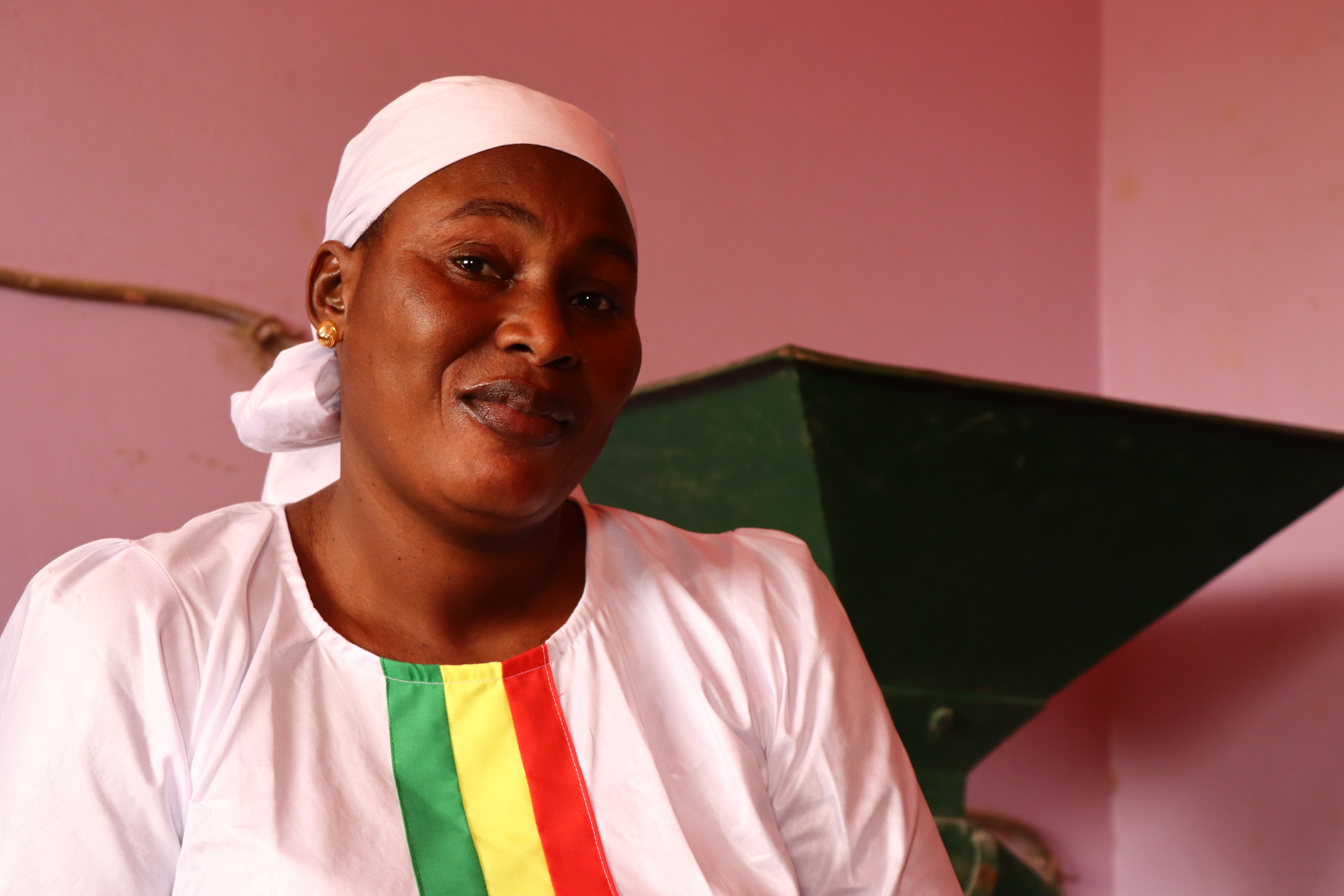Building partnerships with the private sector to harness migration’s potential
October 31, 2023

In Senegal, the Migration For Development Programme supported mappings to understand the reasons why people migrated and how to support those who had returned from abroad.
Countries wanting to reap the many rewards of migration must look to deepen their engagement with the private sector. One in eight people worldwide are on the move, including internal and international migrants and forcibly displaced people. Migrants already contribute greatly as employers, employees, taxpayers and entrepreneurs. They improve their own lives, those of the communities around them, and send remittances that benefit 800 million family members. The opportunities for them to contribute to economic growth and sustainable development could be expanded with the help of businesses, banks and other private sector actors.
The world is still recovering from COVID-19. Several countries face historic levels of unemployment. The global jobs gap - stood at 473 million people in 2022. Countries face a global skills shortage related to the technology and green economy transformations. Migration will be essential to build stronger economies, fill labour gaps and create solutions to climate change.
Migrants help the private sector power innovation, and are overrepresented in patents, arts and sciences awards. On the other hand, the private sector creates jobs so that migrants can effectively use their skills and support their families. But the private sector’s role can go far beyond this, by fostering migrants’ entrepreneurship, providing them products and services, advocating with governments for more inclusive policies, and playing an essential role in the integration of migrants into societies and economies.
Yet, migrants still find limits placed on their ability to contribute. They struggle to find work in the formal labour market and to access finance, healthcare and education. Their skills and diplomas are not always recognized. They often face racism, discrimination and exclusion.
Companies can find themselves struggling with the “red tape” surrounding the legal, regulatory and policy frameworks governing migration. Their own limited knowledge, potentially biased attitudes towards migrants and gender-based discrimination raise further blocks.

The Migration For Sustainable Development Programme in Senegal empowers local community members and returning migrants through income generation, business training, awareness raising and livelihood support, with a focus on green jobs.
While the rationale for private sector engagement for enhanced migration and development outcomes is very clear, more needs to be done to engage the private sector in an efficient way. Despite excellent examples of successful partnerships, private sector engagement still remains ad-hoc rather than based on long-term relationship building between the private sector, governments, local communities and migrants.
A new report, Empowering Migrants and Communities: Private Sector Engagement for Inclusive Sustainable Development, shows how governments, international cooperation and development actors can promote more robust private sector engagement.
The report is based on the experiences from the International Organization for Migration (IOM) and the United Development Programme (UNDP) through the implementation of the Joint Global Programme on ‘Making Migration Work for Sustainable Development’ (M4SD) in 11 countries, supported by the Swiss Agency for Development and Cooperation.
The M4SD Programme implemented a comprehensive, multi-step private sector engagement approach, first based on mappings in countries and towns to better understand the private sector and tailor engagement strategies.
In the Tangier-Tétouan-Al Hoceïma region of Morocco, 80 percent of migrants end up in the informal sector. Only three out of the 59 companies who were surveyed hired migrants.

In Morocco, the IOM-UNDP Migration For Sustainable Programme supports employment and livelihood opportunities for young entrepreneurs through training, internships, and support to start up collectives.
In response, the M4SD Programme produced videos on the hiring regulations, explained the benefits and business case for recruiting migrants and detailed the services available to support migrants to find jobs or start businesses. The Programme also worked with civil society organizations and the local government to help migrants and Moroccans to learn in-demand skills, set up businesses and find job opportunities.
Marie is a typical person who benefited from this support. She had been a successful shop owner in Senegal but could not find work after moving to the Tangier-Tétouan-Al Hoceïma region. Through training conducted by a local community organization, she built up a cosmetic business and works with local producers to sell beauty products across West Africa, improving the local economy and bolstering trade ties.
In Senegal, high unemployment drives young people to emigrate, mostly using irregular routes. At the same time, there is a shortage of workers with the skills needed to improve local sustainable agriculture and tourism.
M4SD supported workshops with the local government, the private sector and development actors, which identified measures to create new economic opportunities at home for potential emigrants and return migrants.

The IOM-UNDP Migration For Sustainable Development Programme helped entrepreneurs in Senegal, including returning migrants, with equipment and training on the environment.
In Serbia, companies are currently experiencing a shortage of workers in various occupations, while migrants returning to the country, many of them from the Roma community, and many other young people struggle to find work.
Local governments in Prokuplje, Knjazevac and Ivanjica are working to understand the labour needs of employers and youth, and then offer training so people have the skills they need to build careers and employers have a well-trained new workforce.

In the Serbian town of Ivanjica, IOM and UNDP support the Municipality in providing training for young people, including for migrants.
Lydia returned to Prokuplje after migrating abroad, and is a member of the Roma community. She took part in a sewing course. “I am already completing work for customers on my personal sewing machine. With a bit of money to invest, I would grow my business and sell online or at markets.”
Report recommendations
The report, Empowering Migrants and Communities: Private Sector Engagement for Inclusive Sustainable Development offers a series of recommendations to deepen private sector engagement based on the real-world experiences of the M4SD Programme:
- Advocating on the benefits of migration,
- Increasing access to decent jobs,
- Knowledge sharing and capacity development,
- Addressing policy and regulatory barriers,
- Involving the private sector in migration policy.
As Milan Djokic, Mayor of the Knjazevac Municipality in Serbia says, “Only together can we achieve something good.”

 Locations
Locations











